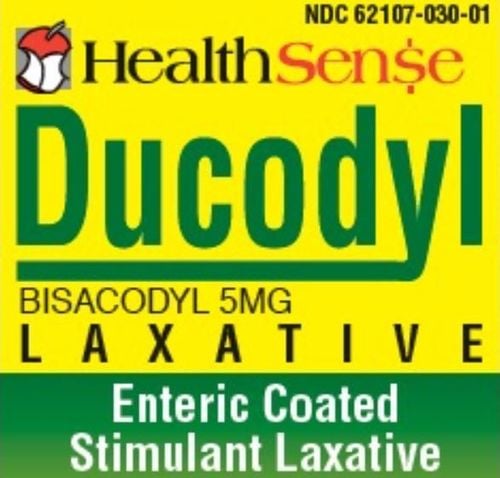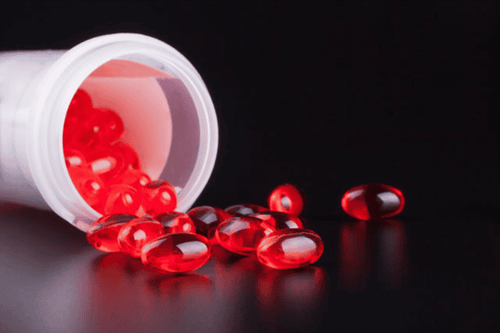This is an automatically translated article.
Colace or Docusate is on the World Health Organization's list of essential medicines, used in the treatment of symptoms of constipation. Besides effective use, patients should also pay attention to drug interactions and unwanted reactions that Colace causes.
1. What is the use of Colace?
Colace has another common name Docusate, contains the main ingredient Docusate sodium, belongs to the laxative group, is used to treat diseases such as:
Infrequent constipation: The main use of Docusate sodium is to constipation treatment. It acts as a laxative and has the ability to soften stools. In the case of patients with anorectal diseases such as hemorrhoids and anal fissures, the drug can help reduce pain caused by straining during bowel movements. In addition, Docusate sodium is sometimes used to soften earwax and help remove it. Mechanism of action:
Docusate is a stool softening laxative. It works by reducing the surface tension of the oil and water interface of the stool, allowing water and lipids to enter the fecal mass. As a result, stools are soft and easy to pass through the intestinal tract. Colace does not exist in the digestive tract, will be absorbed into the blood and excreted through the gallbladder.
2. Dosage and usage
How to use: Colace is taken orally, for best absorption, the patient should drink with plenty of water.
Dosage: The dose of the drug will be prescribed by the doctor based on the patient's health condition and ability to respond to therapy.
Oral docusate sodium is administered once daily or in divided doses, while the calcium docusate dosage is 1 time a day.
Usual Adult Dose for Constipation: Take a dose of 50 to 300mg per day, divided into 1 to 4 doses. Usual Pediatric Dose for Constipation: Children 2 to 12 years of age take 50 to 150 mg per day, divided into 1 to 4 doses. For children under 2 years old, consult a doctor. The drug is contraindicated in the following cases:
Patients with allergies or hypersensitivity to the components of the drug. Patients with intestinal obstruction or symptoms of appendicitis or acute abdominal pain. Do not use the medicine for longer than 7 days. The patient is experiencing nausea, vomiting or severe stomach pain. Colace is not recommended in people with appendicitis, acute abdominal pain, or ileus. Overdose, missed dose and treatment:
Missed dose: If the patient forgets 1 dose of Docusate, take the next dose as usual. Never take 2 doses at the same time to make up for a missed dose. Overdose: When patients take an overdose of Colace, they may experience diarrhea or stomach pain. When experiencing this reaction, it is better for the patient to stop taking the drug so that the body can return to normal, as these reactions usually go away within 1 to 2 days.
3. Caution
Patients may lose electrolyte balance when using high doses of Colace and for a long time. Using Colace in large doses and for a long time can lead to drug dependence. Avoid using Colace concurrently with mineral oil as it may increase oil absorption. Excessive bowel movements caused by laxative use can lead to loss of fluids and electrolytes through the digestive tract. This condition may present with hypokalemia, hypokalemia, and non-anionic metabolic acidosis. Docusate sodium is considered to be quite safe, causing no serious side effects for women who are pregnant and breastfeeding. Colace can be used by people who are taking opioids. However, prolonged use can cause gastrointestinal irritation.
4. Side effects
Colace side effects are quite common and mild including: Stomach pain, abdominal cramps or diarrhea, nausea, vomiting. A serious allergic reaction that can occur when using Docusate is rectal bleeding.
Instructions for handling side effects:
When feeling nauseous: The patient can take Colace with the main meal or take it with a snack, so that the amount of food in the stomach helps reduce the feeling of nausea. . When experiencing diarrhea: If the patient has diarrhea, stop taking Docusate for a short time and drink plenty of water or juice to prevent dehydration and prevent constipation from returning. Stomach cramps: If the patient has stomach cramps, reduce the dose of Docusate until the condition disappears. If any of these effects persist or get worse, tell your doctor or pharmacist immediately so that appropriate action can be taken.
5. Drug interactions
A drug interaction is a change in the way Colace works or works or an increased risk of serious side effects. Therefore, tell your doctor what medicines you are taking or have taken most recently before starting treatment with Colace to avoid drug interactions.
Acetazolamide : The risk or severity of adverse events may be increased when Acetazolamide is combined with Docusate. Aclidinium: The therapeutic efficacy of Docusate may be reduced when used in combination with Aclidinium. Alfentanil: The therapeutic efficacy of Docusate may be reduced when used in combination with Alfentanil. Amiloride: The risk or severity of side effects may be increased when Amiloride is combined with Docusate. Amiodarone: The therapeutic efficacy of Docusate may be reduced when used in combination with Amiodarone. 1,8-dihydroxyanthraquinone: Docusate may increase the reabsorption of this drug. Zonisamide: The risk or severity of side effects may be increased when Zonisamide is combined with Docusate. Solifenacin: The therapeutic efficacy of Docusate may be reduced when used in combination with Solifenacin. Amitriptyline: The therapeutic efficacy of Docusate may be reduced when used in combination with Amitriptyline. To avoid interactions, before being prescribed Colace, the patient should inform the doctor about the drugs they are using, including functional foods. The doctor will base on that to prescribe the appropriate Colace.
Above is all information about Colace, patients need to carefully read the instructions for use, consult a doctor / pharmacist before using. Note, Colace is a prescription drug, patients absolutely must not buy and treat at home because they may experience unwanted side effects.
References: drugs.com













